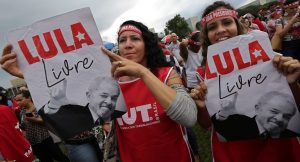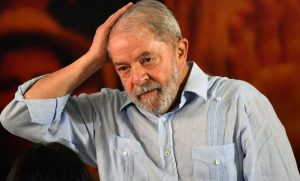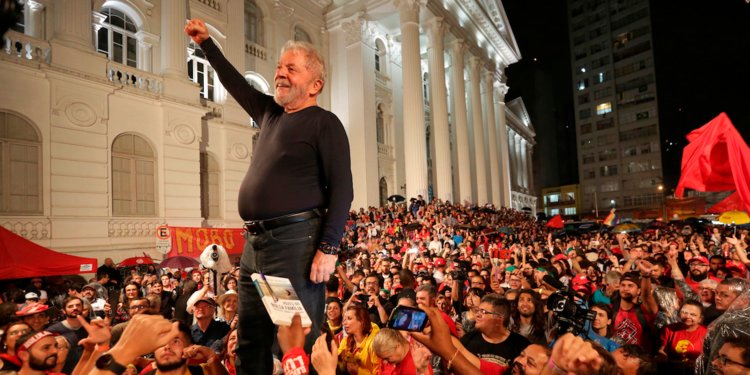 By 2003 when the Workers Party won election and Luiz Inácio Lula da Silva, shortened to ‘Lula’, became the president, Brazil was a virtual write off. The IMF was running the show, dictating terms of governance as it does to all countries that couldn’t get it right and had to run to it. Brazil had returned to democracy since 1985, operating a multiparty system in which the Democratic Movement Party, the Brazilian Republican Party, the Brazilian Social Democratic Party, the Liberal Front Party, the Party of the National Reconstruction and the Workers Party were the key platforms. Between 1994 and 2002, it was ruled by the prominent dependency scholar, Fernando Henrique Cardoso who focused a lot on foreign investment, provision of water (because of the strategic calculation that lack or poor source of water accounts for more than 50% of the health problems in most of the developing countries), infant mortality and social subsidy for low income brackets.
By 2003 when the Workers Party won election and Luiz Inácio Lula da Silva, shortened to ‘Lula’, became the president, Brazil was a virtual write off. The IMF was running the show, dictating terms of governance as it does to all countries that couldn’t get it right and had to run to it. Brazil had returned to democracy since 1985, operating a multiparty system in which the Democratic Movement Party, the Brazilian Republican Party, the Brazilian Social Democratic Party, the Liberal Front Party, the Party of the National Reconstruction and the Workers Party were the key platforms. Between 1994 and 2002, it was ruled by the prominent dependency scholar, Fernando Henrique Cardoso who focused a lot on foreign investment, provision of water (because of the strategic calculation that lack or poor source of water accounts for more than 50% of the health problems in most of the developing countries), infant mortality and social subsidy for low income brackets.
Either due to the complications of Brazilian politics in terms of a deeply divided society arising from slavery and racism or due to prolonged military rule, even a Cardoso who was one of the big voices in the most fascinating domestication of Marxism outside Europe could not take Brazil to El Dorado. Accumulated anger and frustration with oligarchic tendencies such as the military and the IMF pushed voters to Lula in 2003. Then Brazil began to see him do wonders, including paying off nearly $16b debt to the IMF and even offering it a bail out in what appears a mockery move. This is besides the wonder that resulted in taking upwards of 20million out of poverty at the end of his rule, a figure even by the IMF and the World Bank believe to be much more than that. Former American president, Barrack Obama couldn’t help it, he declared him “the most popular politician on Earth”. But that is the voice of the melted wing of the global power circuit, not the hard core, unrepentant and insensitive mandarins. All that ended yesterday evening with Lula now a prisoner. It is the week in which two former presidents ended up in jail – Park Geun-hye, immediate past president of South Korea and Lula. Jacob Zuma of South Africa might follow if he is not lucky.
 The most interesting one for now is that of Lula. This is because of the many similarities between Brazil and Nigeria. Both have vast territories, none has a threatening neighbour in territorial terms although some people compare France in Nigeria to Argentina as a potential competitor to Brazil in Latin America. Nigeria and Brazil are deeply divided societies although Brazil is a fairer society than Nigeria to the extent that it is overcoming its divisions through modernisation while Nigeria’s divisions are deepening, courtesy of poverty. Lastly, both Brazil and Nigeria’s elite have problem of forming and abiding by consensus. Both are so fragmented that they have each needed the military to impose order for a long time.
The most interesting one for now is that of Lula. This is because of the many similarities between Brazil and Nigeria. Both have vast territories, none has a threatening neighbour in territorial terms although some people compare France in Nigeria to Argentina as a potential competitor to Brazil in Latin America. Nigeria and Brazil are deeply divided societies although Brazil is a fairer society than Nigeria to the extent that it is overcoming its divisions through modernisation while Nigeria’s divisions are deepening, courtesy of poverty. Lastly, both Brazil and Nigeria’s elite have problem of forming and abiding by consensus. Both are so fragmented that they have each needed the military to impose order for a long time.
Against this background, it makes sense to ask about when Nigeria will get its own Lula: the leader with a sense of urgency about how broken the country is, who will approach management of power in such a way as to lift millions out of poverty very quickly, who will get out of the way or control of the IMF not by railing against it by doing its arithmetic right. When and where is such a leader hiding in Nigeria and who or how might he or she be fished out? How would Nigeria know who the fellow is and who will tell them that s/he is the genuine guy they have been looking for? How might such person not disappoint, given the terrible history this Nigeria has had with otherwise very promising people until they got to power?
Would that be an informed, quality person or a Leftist? Does anyone exist in labour right now for that sort of task or in the existing political parties? Or, is in business or academia? Should he or she be educated or not? Interestingly, Lula didn’t go to school in a formal sense. Yet, aside from Mandela and Putin of Russia, he is one of the most fascinating case studies of agency in the post Cold War. In 2012, Jay Naidoo, the foundation General Secretary of the Congress of South African Trade Union, (COSATU), one of the pillars of the alliance that took over power from the Apartheid regime in 1994 and who was Mandela’s minister in charge of the crucial Reconstruction and Development portfolio was asked what he thought about Lula. Naidoo as president of the Geneva based Global Alliance for Improved Nutrition, (GAIN) had had something to do with Lula. And he said in his answer that “People like that are rare occurrences in the history of humanity. How many times do you have a Mandela, a Mahatma Ghandi or a Nasser or an Nkrumah or Lumumba or a Malcolm X? How many of them do you have today?”
Does it mean it is unlikely Nigeria will ever get the benefit of a local variant of a Lula? The multi-billion naira question!




























